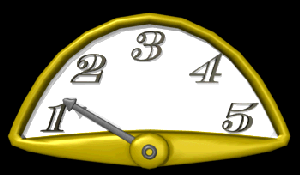UP/DOWN UP/DOWN
Market Ends Up 1.1% for August
Fed may cut interest rates at its next meeting September 18 - Maybe Earlier
September 3, 2007
By: Jerry Cole - Retirement, Investment

August Stock Market is Up, Down, Up
For the Month But Ends Up 1.1%
In spite of all the worry over the potential for the credit markets to put the U.S, economy in recession, the stock market ended the month of August in the black.The Dow Jones Industrial Average jumped 119.01 points Friday, and although it slipped 0.2% for the week, it ended the month up 1.1%.
Many things can come together that will make the market move one way or another. The key elements on Friday were comments by Fed Chairman Ben Bernanke and the release of government data showing that a key measure of inflation, excluding food and energy prices, was up 1.9% in July.
That reading is below the 2% threshold generally considered satisfactory by the Fed and could possibly allow the Fed to cut interest rates to aid the economy.
Mr. Bernanke, for his part, increased investor optimism with his comment that the Fed will "act as needed to limit the adverse effects on the broader economy that may arise from the disruptions in financial markets." Translated, the comment could mean the Fed will indeed cut interest rates at its next meeting Sept. 18, if not even earlier.
You have to be careful not to overreact in times of high volatility, such as we experienced in the month of August. On a relative basis, stocks are not over-priced. A common sign of froth in the market is stocks being bid up to high multiples of their earnings.
Today the average stock in the S&P 500 trades at about 17 times its expected earnings over the next year. This is only a little above the average since the 1930's. At the end of 1999, the index's average P/E ratio topped 30.
Dividend pay-outs cushion the blow of tough markets. Today the average stock in the S&P 500 has a yield of about 1.8%. That's below historical averages, but about 60% higher than in 1999.
Also, many investors have more diversified portfolios than they did back in 1999. At the end of the 1990's, shares of technology and telecom stocks were pulling the indexes higher on their own with their off the map valuations. When the bubble burst, these stocks were hit the hardest.
These differences mean it is unlikely this market will behave like the one in 2000. They don't, however, mean the market will keep climbing. U.S. profit growth is slowing. The full effects of the continued slide in the housing market and the dollar are hard to gauge.
A lot depends on the consumer, whose spending makes up two thirds of the economy. If consumer confidence remains high, and the Federal Reserve can negotiate the troubled waters with the right interest rate boat, the U.S.should be able to make it through the present credit market crisis.
Remember to tailor your investment plan to your unique financial needs, risk tolerance and goals. Don't follow the crowd!
I invite your questions.
Or Contact Jerry Cole at:
509 Center Ave, Suite #102, Bay City, MI
(989) 892-5055
(The opinions expressed are solely those of the author and not Gen worth Financial Securities Corporation.)